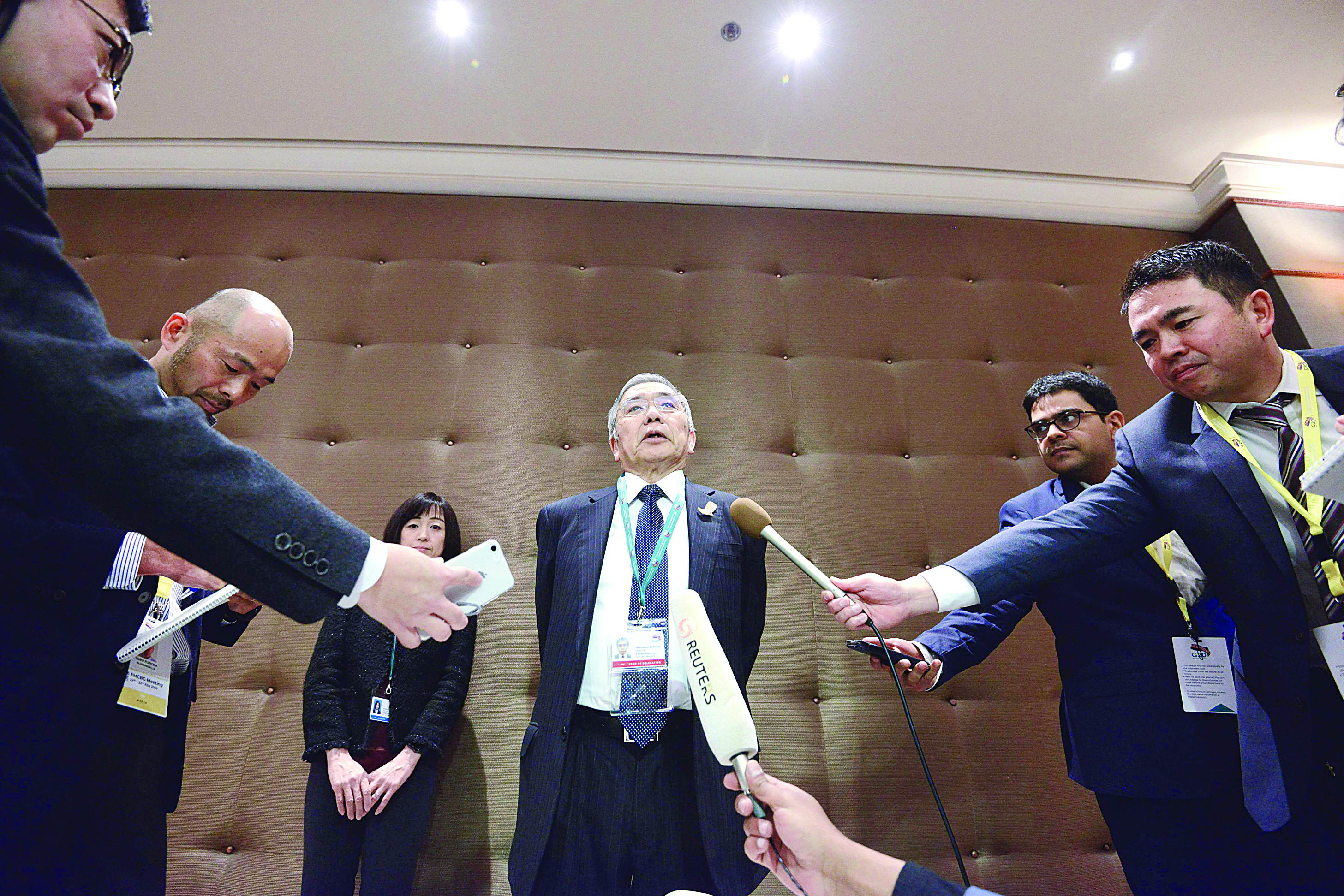
RIYADH: Finance ministers and central bank governors from G20 nations meet in the Saudi capital yesterday for a two-day gathering to discuss the global economy and the risks from the coronavirus epidemic. Aside from an action plan to shield the world economy from the impact of the outbreak, financial leaders from the world's top 20 economies are also expected to discuss ways to achieve a fairer global taxation system for the digital era.
"Finance ministers and central bank governors will discuss global economic outlook and possible policy responses to support growth and safeguard against downside risks," G20 organizers said in a statement. "In addition, they will discuss the priorities of the Saudi G20 Presidency under the theme 'realizing opportunities of the 21st century for all'… including the tax challenges arising from the digitalization of the economy."
The meeting in Saudi Arabia, the first Arab nation to hold the G20 presidency, will be chaired by the the kingdom's finance minister Mohammed Al-Jadaan and central bank governor Ahmed Al-Kholifey. The meeting comes amid growing alarm over the new coronavirus as Chinese authorities lock down millions of people to prevent the spread of the disease, with major knock-on effects for the global economy. The impact of the epidemic may be short-lived but it comes as the global economy remains "fragile", IMF chief Kristalina Georgieva told a gathering in Riyadh on Friday.
Georgieva said the economic impact could see a "V-shaped" trajectory, with a sharp decline in China's GDP followed by a sharp recovery. She warned the situation could have more dire consequences for other countries as the impacts spill over. The virus has now claimed 2,345 lives in China, cutting off transportation and forcing businesses to close their doors. China has said it will not be sending any leaders from Beijing for the Riyadh gathering but the Chinese ambassador in the kingdom will instead lead a small delegation.
"We have been closely watching the developments of the virus and assessing its potential effects on economic growth," a senior US Treasury official told reporters. "We expect ministers and governors will discuss the global economic outlook, particularly as it relates to the coronavirus outbreak." The G20 organizers will also host a ministerial-level symposium on international taxation, focused on the challenges arising from the digitalization of the global economy.
The symposium will be attended by US Treasury Secretary Steven Mnuchin along with a host of other financial leaders. The Saudi presidency will see it host world leaders for a summit in Riyadh from November 21 to 22. It will hold more than 100 events and conferences in the run-up to the summit, including ministerial meetings, organizers say. Human rights groups have urged G20 member states to exert pressure on the kingdom over its intensifying crackdown on dissent, which has seen women activists, journalists and political dissidents jailed.
Taxing tech giants
Leading world economies must show unity in dealing with aggressive "tax optimization" by global digital giants like Google, Amazon and Facebook, G20 officials said yesterday. Global rules are being developed by the Organization for Economic Cooperation and Development (OECD) to make digital companies pay tax where they do business, rather than where they register subsidiaries. The OECD says this could boost national tax revenues by a total of $100 billion a year.
The call for unity appeared mainly directed at the United States, home to the biggest tech companies, in an attempt to head off any stalling on the rules until after the American presidential election in November. "There is no time to wait for elections," German Finance Minister Olaf Scholz told a tax seminar on the sidelines of a meeting of G20 finance ministers and central bankers. "This needs leadership in certain countries," Scholz said looking directly at US Treasury Secretary Steven Mnuchin, sitting next to him at the seminar.
The taxing of digital firms and the effect of the coronavirus outbreak on the global economy are among the hot topic for G20 financial leaders, from the world's 20 largest economies, during their talks in Riyadh this weekend. The OECD wants to set a minimum effective level at which such companies would be taxed and seeks agreement by the start of July, with an endorsement by the G20 by the end of the year. "A coordinated answer is not the better way forward, but, given the alternatives, the only way forward," OECD head Angel Gurria told the seminar.
But the OECD efforts were stalled late last year by last-minute changes demanded by Washington, which many G20 officials view as reluctant to deal with a potentially politically tricky matter before the presidential election. Mnuchin said OECD countries were close to an agreement on the minimum tax level, which he said would also go a long way to resolving the issue of where tax is payed. "I think we all want to get this done by the end of the year, and that's the objective," Mnuchin told the seminar.
Several European countries, including France, Spain, Austria, Italy, Britain and Hungary either already have a plan for a digital tax or are working on one, creating the risk of a highly fragmented global system. "You cannot have in a global economy different national tax systems that conflict with each other," Mnuchin said. Facebook Chief Executive Mark Zuckerberg said on Feb 14 he would be ready to pay more tax in Europe and would welcome a global OECD solution that would make the levies uniform. - Agencies










